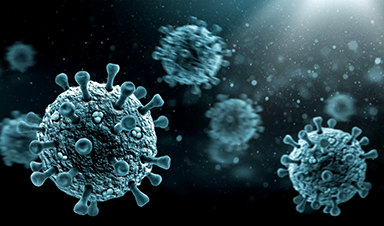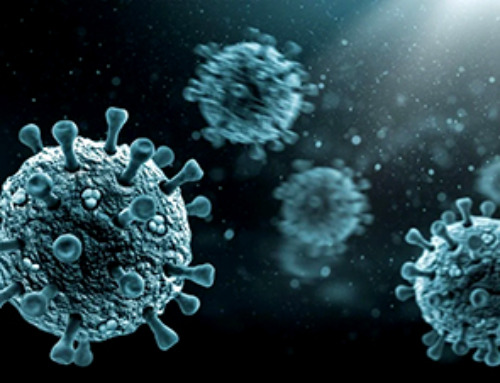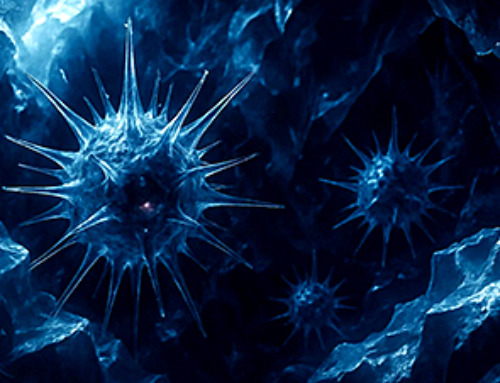Omicron infections have a lower risk of long COVID than earlier variants, according to a study analyzing data from 11,000 participants.
The risk of developing long COVID is significantly lower following an infection with the Omicron variant than after an infection with earlier coronavirus variants. This was the finding of a study by University Medicine Halle, which was published in the International Journal of Infectious Diseases.
The analysis looked at information gathered from 11,000 people about their infection history, vaccination status, and post-infection symptoms. The data provide strong evidence that the risk for long-term effects after a re-infection with the coronavirus is lower if the patient did not develop long COVID after the initial infection.
Understanding Long COVID and its Relation to Variants
Long-term symptoms can develop after a coronavirus infection. This is commonly referred to as “long COVID” or “Post COVID-19 condition.” The underlying risk factors are currently under intensive investigation.
“We wanted to understand the connection between long COVID and different coronavirus variants, vaccinations, and past infections,” explains Sophie Diexer, first author of the new study and researcher at the Institute of Medical Epidemiology, Biometry and Informatics at University Medicine Halle. “Our study shows that the percentage of people who develop long COVID symptoms after an infection was lowest at the time when Omicron was prevalent.”
The risk was found to be around three to four times lower after an Omicron infection than after an infection with the wild-type variant. Around half of all wild-type infected individuals reported persisting symptoms. It should be noted, however, that the majority of all infections occurred while Omicron was dominant. “In purely numerical terms, this means that most people developed long COVID following an Omicron infection,” says Diexer.
Recovery and Reduced Risk
The study also provides strong evidence of a protective effect once the patient has recovered from a coronavirus infection. “People who did not develop persistent symptoms after their initial infection had a significantly lower risk of developing long COVID following re-infection than people who were infected with the coronavirus for the first time. We were surprised by the scale of this effect,” explains the researcher.
However, the scientists were unable to demonstrate that, in the event of a vaccine breakthrough, the vaccine had any protective effect against long COVID. Due to the timing of the study, however, it was not possible to analyze the vaccine that specifically targeted the Omicron variant.
Details and Background of the Study
The study is based on the Germany-wide DigiHero project, which more than 48,000 people participated in until June 2022. “Studies have already looked at the relationship between the risk of long COVID and the different variants, but none has taken into account infection history,” explains Professor Rafael Mikolajczyk, director of the Institute of Medical Epidemiology, Biometry and Informatics at University Medicine Halle.
“Of the respondents, approximately 11,000 reported at least one coronavirus infection that had occurred in the twelve weeks prior to when the data was collected for our study. Classification was based on the predominant variant at the time of the reported infection.”
Participants were questioned about 24 typical long COVID symptoms, with 2,822 individuals reporting that they had experienced such symptoms. Of these, 406 (14 percent) reported experiencing severe fatigue, 237 (8 percent ) severe headaches, and 202 (7 percent) severe shortness of breath. The intensity of the symptoms was not related to the coronavirus variant.
Future Investigations and DigiHero Project
Follow-up surveys are currently being conducted to explore the persistence of long COVID symptoms. “In addition to possible long-term symptoms following a coronavirus infection, DigiHero is addressing a wide range of health issues and other impacts of the COVID-19 pandemic,” adds Mikolajczyk.
On the basis of DigiHero, University Medicine Halle has also launched the Long COVID Registry in cooperation with Otto von Guericke University Magdeburg and the Rechts der Isar Hospital of the TUM School of Medicine. The registry records, for example, long COVID symptoms as well as their progression, severity, and alleviation through specific therapies.
Reference: “Association between Virus Variants, Vaccination, Previous Infections, and Post COVID-19 Risk” by Sophie Diexer, Bianca Klee, Cornelia Gottschick, Chao Xu, Anja Broda, Oliver Purschke, Mascha Binder, Thomas Frese, Matthias Girndt, Jessica I. Hoell, Irene Moor, Michael Gekle and Rafael Mikolajczyk, 25 August 2023, International Journal of Infectious Diseases.
DOI: 10.1016/j.ijid.2023.08.019
DigiHero is a Germany-wide, population-based digital health research study. To date, over 90,000 people from 14 German states have registered. Participants are invited to complete online surveys that explore issues surrounding the development of chronic disease, healthy aging, health behaviors, and the coronavirus. Five clinics and four institutes from University Medicine Halle are taking part. Other project partners include Jena University Hospital, the Leibniz Institute for Prevention Research and Epidemiology – BIPS, and the University of Bremen.
News
Enhanced Antibacterial Polylactic Acid-Curcumin Nanofibers for Wound Dressing
Background Wound healing is a complex physiological process that can be compromised by infection and impaired tissue regeneration. Conventional dressings, typically made from natural fibers such as cotton or linen, offer limited functionality. Nanofiber [...]
Global Nanomaterial Regulation: A Country-by-Country Comparison
Nanomaterials are materials with at least one dimension smaller than 100 nanometres (about 100,000 times thinner than a human hair). Because of their tiny size, they have unique properties that can be useful in [...]
Pandemic Potential: Scientists Discover 3 Hotspots of Deadly Emerging Disease in the US
Virginia Tech researchers discovered six new rodent carriers of hantavirus and identified U.S. hotspots, highlighting the virus’s adaptability and the impact of climate and ecology on its spread. Hantavirus recently drew public attention following reports [...]
Studies detail high rates of long COVID among healthcare, dental workers
Researchers have estimated approximately 8% of Americas have ever experienced long COVID, or lasting symptoms, following an acute COVID-19 infection. Now two recent international studies suggest that the percentage is much higher among healthcare workers [...]
Melting Arctic Ice May Unleash Ancient Deadly Diseases, Scientists Warn
Melting Arctic ice increases human and animal interactions, raising the risk of infectious disease spread. Researchers urge early intervention and surveillance. Climate change is opening new pathways for the spread of infectious diseases such [...]
Scientists May Have Found a Secret Weapon To Stop Pancreatic Cancer Before It Starts
Researchers at Cold Spring Harbor Laboratory have found that blocking the FGFR2 and EGFR genes can stop early-stage pancreatic cancer from progressing, offering a promising path toward prevention. Pancreatic cancer is expected to become [...]
Breakthrough Drug Restores Vision: Researchers Successfully Reverse Retinal Damage
Blocking the PROX1 protein allowed KAIST researchers to regenerate damaged retinas and restore vision in mice. Vision is one of the most important human senses, yet more than 300 million people around the world are at [...]
Differentiating cancerous and healthy cells through motion analysis
Researchers from Tokyo Metropolitan University have found that the motion of unlabeled cells can be used to tell whether they are cancerous or healthy. They observed malignant fibrosarcoma [...]
This Tiny Cellular Gate Could Be the Key to Curing Cancer – And Regrowing Hair
After more than five decades of mystery, scientists have finally unveiled the detailed structure and function of a long-theorized molecular machine in our mitochondria — the mitochondrial pyruvate carrier. This microscopic gatekeeper controls how [...]
Unlocking Vision’s Secrets: Researchers Reveal 3D Structure of Key Eye Protein
Researchers have uncovered the 3D structure of RBP3, a key protein in vision, revealing how it transports retinoids and fatty acids and how its dysfunction may lead to retinal diseases. Proteins play a critical [...]
5 Key Facts About Nanoplastics and How They Affect the Human Body
Nanoplastics are typically defined as plastic particles smaller than 1000 nanometers. These particles are increasingly being detected in human tissues: they can bypass biological barriers, accumulate in organs, and may influence health in ways [...]
Measles Is Back: Doctors Warn of Dangerous Surge Across the U.S.
Parents are encouraged to contact their pediatrician if their child has been exposed to measles or is showing symptoms. Pediatric infectious disease experts are emphasizing the critical importance of measles vaccination, as the highly [...]
AI at the Speed of Light: How Silicon Photonics Are Reinventing Hardware
A cutting-edge AI acceleration platform powered by light rather than electricity could revolutionize how AI is trained and deployed. Using photonic integrated circuits made from advanced III-V semiconductors, researchers have developed a system that vastly [...]
A Grain of Brain, 523 Million Synapses, Most Complicated Neuroscience Experiment Ever Attempted
A team of over 150 scientists has achieved what once seemed impossible: a complete wiring and activity map of a tiny section of a mammalian brain. This feat, part of the MICrONS Project, rivals [...]
The Secret “Radar” Bacteria Use To Outsmart Their Enemies
A chemical radar allows bacteria to sense and eliminate predators. Investigating how microorganisms communicate deepens our understanding of the complex ecological interactions that shape our environment is an area of key focus for the [...]
Psychologists explore ethical issues associated with human-AI relationships
It's becoming increasingly commonplace for people to develop intimate, long-term relationships with artificial intelligence (AI) technologies. At their extreme, people have "married" their AI companions in non-legally binding ceremonies, and at least two people [...]





















